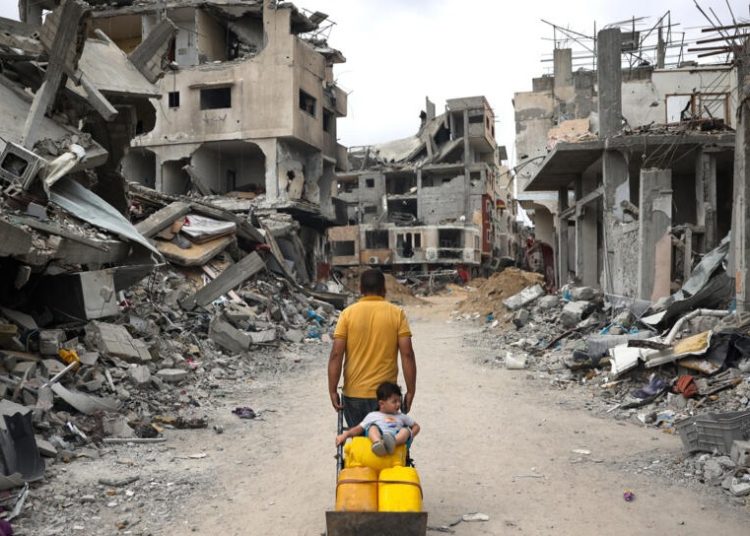WASHINGTON – The United Nations said that Gaza’s post-war reconstruction would require an international effort unseen since the aftermath of World War II, estimating it could cost up to $40 billion.
It came as Hamas chief Ismail Haniyeh struck an optimistic tone over a possible truce and hostage release deal, after weeks of largely stalled negotiations.
There have been reports of sticking points between the militant group and Israel nearly seven months into the war that has devastated the Palestinian territory.
But Haniyeh, head of the militant group’s Qatar-based political bureau, said in calls to Egyptian and Qatari mediators that Hamas was studying the latest proposal with a “positive spirit”.
Much of Gaza has been reduced to a grey landscape of rubble, and the United Nations estimated the cost of reconstruction at between $30 billion and $40 billion.
“The scale of the destruction is huge and unprecedented… this is a mission that the global community has not dealt with since World War II,” assistant secretary-general Abdallah al-Dardari told a briefing in the Jordanian capital Amman according to AFP.
He said “72 percent of all residential buildings have been completely or partially destroyed”.
Reconstruction is made more difficult by the presence of large quantities of unexploded ordnance that Gaza’s Civil Defence agency says triggers “more than 10 explosions every week”.
In response to US pressure, Israel has allowed increased aid deliveries into Gaza in recent days, including through a reopened crossing.
But UN aid chief Martin Griffiths said that “improvements in bringing more aid into Gaza” cannot be used “to prepare for or justify a full-blown military assault on Rafah”.
At south Gaza’s largest hospital, the Nasser Medical Complex in Khan Yunis, which was heavily damaged by fighting in February, foreign aid and borrowed equipment has helped to “almost completely” restore the emergency department, its director Atef al-Hout said.
Witnesses and an AFP correspondent reported air strikes on Khan Yunis Thursday and shelling in the Rafah area, while militants and Israeli troops battled in Gaza City.
Palestinian advocacy groups said that Dr Adnan Ahmed Atiya al-Barsh, orthopaedics chief at Al-Shifa hospital, Gaza’s largest, died last month in Israeli custody, and alleged he had been tortured.
Israel’s military told AFP it was “not aware” of such an incident.
In north Gaza, workers unloaded aid at Kamal Adwan Hospital where Alaa al-Nadi’s son lay motionless in the intensive care unit, his head swathed in bandages.
Nadi, who was also wounded, said she feared the hospital’s power might go out, cutting his oxygen and killing him.
“I call on the world to transfer my son for treatment abroad. He is in a very bad condition,” she said, breaking down.






Discussion about this post